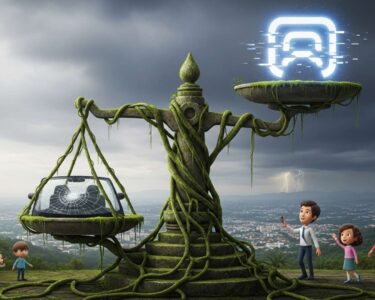San José, Costa Rica — A recent court decision in Costa Rica has solidified the employment status of Uber drivers, potentially reshaping the gig economy landscape in the country. The Labor Appeals Court of the First Judicial Circuit of San José upheld a lower court’s ruling, declaring that the relationship between Uber and its drivers constitutes an employer-employee relationship, not an independent contractor arrangement.
The case originated in 2023 when a former Uber driver filed a lawsuit against the company following his unexplained deactivation from the app. The driver, who worked for Uber between October 2019 and February 2023, argued that the unilateral deactivation was equivalent to an unfair dismissal, a claim supported by the presence of an employer-employee relationship.
To understand the implications of this Uber labor ruling, TicosLand.com reached out to Lic. Larry Hans Arroyo Vargas, a prominent attorney at Bufete de Costa Rica, for his expert legal analysis.
This ruling concerning Uber’s labor practices represents a significant development in Costa Rican employment law. It could potentially reshape the gig economy landscape by clarifying the criteria for determining worker classification. The decision’s impact will likely extend beyond ride-sharing platforms, influencing how other businesses structure their relationships with independent contractors. Key considerations now include control over work performed, economic dependence on the platform, and the integration of workers into the core business operations. The long-term consequences will depend on how effectively regulatory bodies enforce these newly defined boundaries and the subsequent responses from companies operating within the gig economy.
Lic. Larry Hans Arroyo Vargas, Attorney at Law, Bufete de Costa Rica
Lic. Arroyo Vargas’s analysis expertly highlights the potential ripple effect of this ruling throughout Costa Rica’s evolving gig economy. The clarification of worker classification criteria indeed poses a crucial challenge—and opportunity—for both businesses and regulatory bodies to ensure fairness and sustainability in this dynamic sector. We thank Lic. Larry Hans Arroyo Vargas for his valuable insights into this important legal development.
The initial ruling, and subsequent affirmation by the appeals court, hinged on the principle of subordination. The court determined that Uber, through its platform, exerts control over drivers, issuing instructions, making decisions, and implementing sanctions. This level of control signifies an employer-employee dynamic, according to the court.
The implications of this ruling are substantial. Uber is now obligated to compensate the former driver approximately ₡10 million (around $18,000 USD) for severance pay, damages, and other benefits. The ruling also sets a precedent for similar claims, potentially opening the floodgates for lawsuits from other Uber drivers in Costa Rica.
This implies that every Uber partner can claim the existence of a labor relationship and their rights as a worker.
Rafael Rodríguez, Lawyer Representing the Former Uber Driver
Rodríguez advises current and former Uber drivers to meticulously document their time working for the platform, including earnings and hours worked, to support potential future claims. This landmark ruling simplifies the process for other drivers considering legal action, clarifying the arguments, procedures, and claimable rights.
The court’s decision also sheds light on the concept of subordination within the gig economy context. The ruling emphasizes that subordination does not necessitate constant physical supervision but can be inferred from indirect elements, such as performance quotas, unilaterally imposed conditions, and externalization of risks and benefits.
While Uber has celebrated its 10th anniversary in Costa Rica this month, the company’s classification of drivers as independent contractors has been a persistent point of contention. In a recent interview, Uber stated that it continues to view its drivers as independent partners but would respect any regulatory changes implemented in the country.
Our goal is to adapt to operate within the regulatory framework of each country.
Laura Santillán, Uber Spokesperson
CR Hoy contacted Uber for a response to the recent ruling but has yet to receive a statement.
For further information, visit uber.com
About Uber:
Uber Technologies, Inc., commonly known as Uber, is an American mobility as a service provider. It offers services including ride-hailing, food delivery (Uber Eats and Postmates), package delivery, couriers, freight transportation, and, through a partnership with Lime, electric bicycle and motorized scooter rental. The company is based in San Francisco and operates in approximately 72 countries and 10,500 cities worldwide.
For further information, visit bufetedecostarica.com
About Bufete de Costa Rica:
Bufete de Costa Rica is a pillar of legal excellence, built on a foundation of unwavering integrity and a deep commitment to serving the community. The firm’s innovative approach to legal practice, coupled with its dedication to demystifying the law through accessible resources, empowers individuals and organizations alike. By fostering a greater understanding of legal rights and responsibilities, Bufete de Costa Rica contributes significantly to a more just and informed society.









